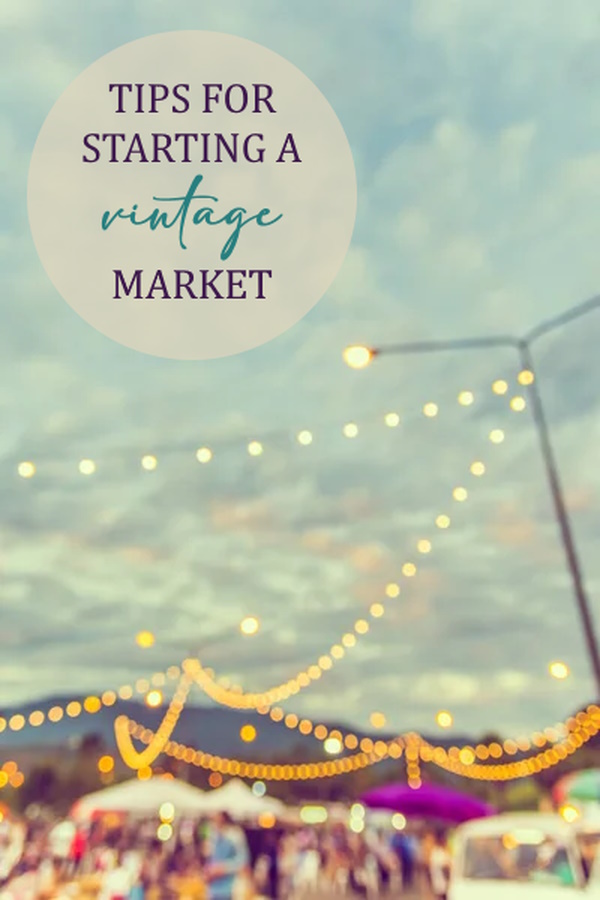There are a lot of moving parts when it comes to starting a vintage market or outdoor event; finding vendors, vendor registration, vendor evaluation, prepping your venue, setting up and tearing down, advertising, toilet facilities, public safety plan, technology, overnight security, parking, staff, etc…
Being a good market producer doesn’t happen overnight. You can run a really organized show, but something customarily runs amok every single time. You can have plans and back-up plans, but things do happen. Please don’t let that hinder you from holding a show.

Want to know what I believe are the most important aspects of producing a market? Here’s my list to help you along the way.
1. Your plan – Create a market book/binder. This is where you’ll keep things market related. Write out what needs to be done. Don’t forget to start a budget for the event so you know where your money will go. Get a head start on things at least six months prior to the event. Once you hit the three month mark it’s go-go-go.
2. Vendors – Acquire vendors for your event. For your first year, vendors may be sparse, but as the years go by and your event reputation builds up, the vendors will come more readily. Depending on your market type, I highly recommend having a juried market. Meaning once vendors apply, you pick and choose who gets to participate. Will they be a good fit for your market or event?
Communicate early and often with your vendors once they’re chosen. Tell your vendors repeatedly about set-up, times, tear down and the rules. You’ll find that many skip through emails and don’t really read them thoroughly.
3. Schedule your time – Organize every minute of the setup process, market time and tear down. Make sure your key people (staff) know the schedule of events. It is hard for you to be everywhere. Learn to prep your team and be willing to trust them to make decisions. They will know what to do because they have a schedule and understand what you would do.
4. Advertising – You have a responsibility to your vendors to spend time and money on marketing the event. This is key in making your event successful as well as your vendors which in turn helps with returning vendors. Include the vendors in your marketing efforts and make them aware of your efforts so they feel confident in your promotion.
5. Public Safety – If your event is small, then this one may not apply to you, but keep this in mind as your event grows year after year. Make sure you have a public safety plan in place. Make sure you hire law enforcement and emergency medical personnel. Also make sure you buy adequate event day insurance. The safety of the public, the vendors, and your staff should be your number one priority.
Have you hosted your own events? What’s one thing you won’t do again for your next event?
Looking for more info for starting a market, see some of our Market Must-Haves.